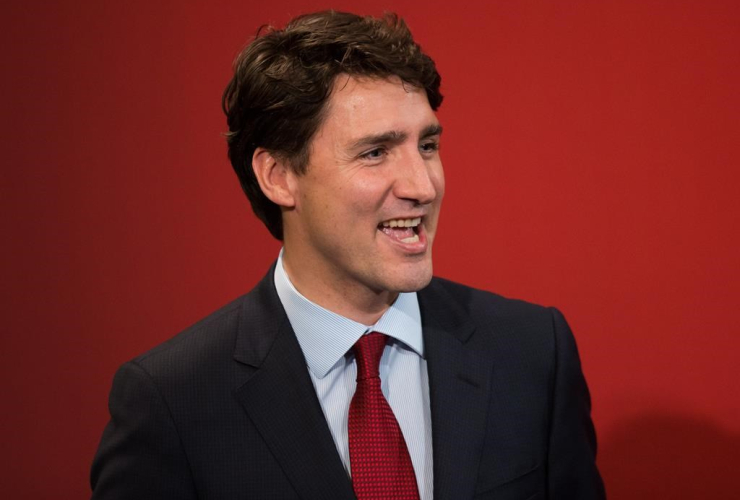Prime Minister Justin Trudeau appeared incredulous Wednesday at Quebec's efforts to clear up confusion surrounding its law on religious neutrality, which is widely seen as targeting Muslim women who wear face veils.
The province's justice minister said last week Bill 62 would oblige people riding a bus or the subway to do so with their face uncovered for the entire journey.
On Tuesday, however, Stéphanie Vallée backtracked, saying only those whose fare requires a card with photo ID will need to uncover their face before riding public transit — and that they can put the veil back on once they've been identified.
Asked specifically in Ottawa about Vallée's clarifications, Trudeau replied: "You call those clarifications?"
"I think we're seeing there are still a lot of things to clarify in this bill, including how it will be applied," Trudeau said. "We will do our homework here in Ottawa. As I've said several times, I don't think a government should be telling a woman what to wear or not wear."
Immediately after Quebec passed Bill 62, Trudeau was hesitant to come out strongly against the legislation. He said the responsibility to challenge the law lied with citizens, not the federal government.
Trudeau, however, has become more critical since his initial comments, suggesting the law violates the Canadian Charter of Rights and Freedoms.
He has also refused to rule out his government's involvement in any future Bill 62 court challenge.
"I will always defend the charter," Trudeau said.
"I will always stand up for individual rights and I will always stand up for the Charter of Rights and Freedoms and we are looking very carefully at what tools we have and what steps we have to make sure we make this situation better for everyone."
In response, Vallée said Quebec has the right to legislate on matters within its jurisdiction.
"Mr. Trudeau has the right to not share our opinion," she told reporters in Quebec City. "And he has the right to have an opinion on the law. But I am not going to get into a debate in the media about that.
"But I am really confident that the law is constitutional and I am convinced that it would withstand any legal challenge."
When asked if Quebec is willing to use the so-called notwithstanding clause, which allows provinces to override the Constitution, she said, "We're not there yet."
"The notwithstanding clause is not part of the debate because there is no legal challenge so far," she added.





Comments